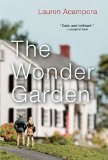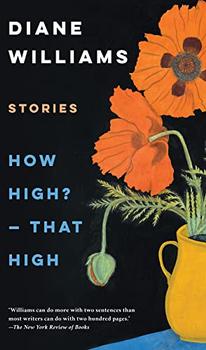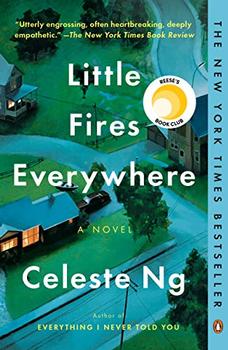Summary | Excerpt | Reviews | Beyond the book | Read-Alikes | Genres & Themes | Author Bio

It should come as no surprise that the land of the white picket fence and the McMansion can harbor deep existential angst. The trope has been expertly mined many a times before by veteran authors like John Updike, John Cheever, Philip Roth, Tom Perrotta and many more. To this eclectic list we can add Lauren Acampora, whose debut collection of short stories, The Wonder Garden, set in a tony New England suburb called Old Cranbury, carries a razor-sharp edge of dark satire and lands Acampora firmly on my list of writers to watch.
In one of the stories, "Swarm," a resident views an art installation of a wall of insects on a house's exterior as a metaphor for the town as a whole: "a grand structure overrun by controlling, suffocating little bugs." In fact the "grand structure" - the town of Old Cranbury (modeled apparently after the posh New York city satellite suburb of Darien, Connecticut) - looms large on every page of the book, although its history would mean nothing if the town didn't have a stellar school district. Its past is trammeled upon by newer residents looking for nothing more than "open floor plans, kitchen islands, Viking ranges," potential homeowners who want "two-car garages and gunite swimming pools in the backyard."
The interlinked stories feature a well-rounded assortment of characters whose paths intersect in the usual ways — as members of the school committee, as doctor and patient, home inspector and realtor — but Acampora's keen eye teases apart these seemingly banal interactions to reveal layers of nuance even in the quotidian. Even the checklist that John Duffy, the home inspector, uses to assess a residence (roof first, basement in the end so the home buyers will be tired by the time they reach the problem areas), hints at a practiced and cynical hand. The unexpected twist at the end of this story — and many others — shows up our frailties as not ones that commit large sins, but everyday seemingly minor lapses and cruelties.
The residents are slowly assimilated through the crushing embrace of homogeneity, but not everyone wants to go down without a fight. In the story, "Visa," for example, Camille, a single mother to daughter Avis, is forever on the periphery of the town's upper-crust social circle. She attends the monthly book group meetings but knows she is an outsider: "She knows they talk about her. That's what happens to independent-minded people in this place, to anyone who isn't brainwashed by beady-eyed mommy culture. They resent her, she knows, for preserving her pre-parent self, for dressing like a woman, for not surrendering to the dowdy, practical fashions that make the rest of them look like they've always just come from the gym, or bed."
In my favorite story, "Elevations," Mark and Harris are fifteen years into a relationship which used to be avant-garde before "gay culture had insinuated itself into the mainstream." Co-owner of an upscale home goods store in town, Mark finds his very definition of what it means to lead a purposeful life questioned and slipping away from his control. He had wanted to volunteer in trouble spots around the world but realizes that Harris is only too happy settling into the plush cushions of suburbia: "they'd come to this place with an understanding, a quiet contract, a shared touch of irony. They'd come as a pair of anthropologists to masquerade among the natives, or so Mark had thought, to mirror their culture and borrow from its abundance. They were not supposed to adopt it, they were not supposed to blend."
So it is that in Mark we have a reflection of the angst-ridden suburban resident, a person who stands on the cusp of being whirled through the blender of conformity. The unnerving parts of these stories are not derived from the quiet menace that lurks in its pages, but in Acampora's ability to show us up for who we truly are: We are mostly just like Mark, she reminds us — all rebels without a cause.
![]() This review was originally published in The BookBrowse Review in May 2015, and has been updated for the
March 2016 edition.
Click here to go to this issue.
This review was originally published in The BookBrowse Review in May 2015, and has been updated for the
March 2016 edition.
Click here to go to this issue.

If you liked The Wonder Garden, try these:

by Diane Williams
Published 2022
Diane Williams, an American master of the short story who will "rewire your brain" (NPR), is back with a collection in which she once again expands the possibilities of fiction.

by Celeste Ng
Published 2019
Winner of the 2017 BookBrowse Fiction Award
From the bestselling author of Everything I Never Told You, a riveting novel that traces the intertwined fates of the picture-perfect Richardson family and the enigmatic mother and daughter who upend their lives.
Your guide toexceptional books
BookBrowse seeks out and recommends the best in contemporary fiction and nonfiction—books that not only engage and entertain but also deepen our understanding of ourselves and the world around us.